What Appears Story-Less is Merely Unknown
Thoughts sprung by The Mad Sisters of Esi, a House of Many Doors, and O Captain!
I’m arriving at this a little more incompletely than I imagined. I don’t have my thoughts in order, I don’t know where I’m going with this, and I certainly don’t know where to begin - though clearly, I’m beginning anyway.
The Mad Sisters of Esi, written by Tasha Mehta, opens with the confession that one of its main characters does not quite know where to begin, either - but she begins anyway. So let’s start there - with The Mad Sisters of Esi.
(Note: mild spoilers for the book, and A House of Many Doors, follow)
I picked the book up while visiting my partner. She thought I was buying the book for her, I thought I was buying the book for me - we are a relationship that was founded on a minor misunderstanding, but this one was not one of the good kind of misunderstandings. I don’t think I’ve ever seen her so disappointed in me. Still, I kept the book. I often pick up books judging them solely on their covers, and the cover on this is a doozy.
Not picture here is how shiny the cover is - it mesmerizes in the way it catches the light. Its purples and pinks draw the eye towards a world of gentle strangeness, a place where life blooms but nothing fits in the way normal things ought to fit. It’s a cover that promises wonder, magic, and an unconventional story at the heart of the weirdness.
I’m halfway through the book, right now, and it’s delivering that on every page. The premise of the book is this: Sisters Myung and Laleh are born as the only human inhabitants of a baby universe that has taken the form of a living, breathing, and above all growing cosmic whale. Each chamber of the whale is filled with a new world, with new worlds growing within it all the time - a universe spreading to infinity, all for the girls to explore.
Myung, however, finds herself burdened with a pressing need to find out what exists outside the whale. She leaves, only to discover a universe filled with darkness (referred to by its inhabitants as “the black sea”) which has been forever changed by the legends and the actions of another pair of separated sisters, who changed the cosmos to find a way home to each other again.
I’m getting through the book a lot more slowly than I’d like. See, I’ve had a hard time getting back into reading. I’ve consumed too much, and have lost that urgency of needing to know what happens. I rest easy knowing that when I put a book down, its story will be content to wait until I return to it, unchanged by my time away. What makes reading through this book even slower, however, is how many times I stop to take notes. How, in nearly every page, there is a word I want to underline, a phrase I want remembered. Tashan Mehta has the ability to suffused simple sentences with powerfully poignant ideas, things I have to stop an unpack, put across so beautifully the feel of them lingers long after I’ve finished unpacking them - right up until a new sentence comes along and does the same.
I read this book with a notebook by my side, to explore ideas this book introduces, or to reflect on feelings it stirs within me. The best thing a book can do is offer you new perspectives on things you spend a lot of time thinking about - and lead you to dwell in the parts of your existence you give little thought to at all.
It’s brushstrokes storytelling - you don’t get a full detailed painting. You get the outlines of it, and then a stroke, here, a stroke there - a feeling, a memory, an academic paper, a tangential perspective. It’s a collection of fragments that you sink into, deeper, and deeper, until you find that the story has pervaded your mind. It’s a book that trusts its readers to fill in the gaps with their imagination, with their own feelings, with their own thoughts about what the gaps might mean.
It is a book undiluted by a need to make sense - for everything to connect perfectly. It does not spend time patching up plot holes, or going out of its way to explain how anything it describes is even possible. Without that dilution, the writing that it does do is potent, and heady. Emotions run deep, and unrestrained. Hearts ache across the page, and actions are guided by those feelings - logic has little to do with it, though its characters have a craftiness and intelligence to them, when needs must.
And through it all, I am, again and again, reminded of one of my favourite games of all time: A House of Many Doors.
The game is a masterpiece, designed, written and programmed by Harry Tuffs. It contains art by Catherine Unger, and music by Zac Beever.
It’s a game I’ve loved for a while. It’s a text-heavy RPG, that has you scuttle through the darkness, encountering Lovecraftian nightmares in between oases of civilization, each of which have been transformed in bizarre ways by the strangeness of the world they find themselves in.
The essential gameplay is extremely similar to Failbetter Games’ Sunless Sea, and its sequel, Sunless Skies, set in the Fallen London setting. There’s some overlap in their settings - Lovecraftian madness and creatures abound in both, steampunk sci-fi that delights in heaping bizarreness on bizarreness. The main difference, I’ve found, is that while the Fallen London games are so enamoured with their own bizarreness that there’s very little in their stories for you to connect to…A House of Many Doors has heart.
The eponymous House is a creature not unlike The Mad Sisters of Esi’s cosmic whale. It too is constantly opening up new chambers, expanding infinitely for its residents to explore. The most significant difference, however, is where the cosmic whale is a being of creation, and growth, the House…is a parasite.
Each of its chambers, or rooms, is filled with something it has sucked in through from the multiverse. It is a lonely house, and every day it sucks in a new person from another world - people who have banded together to make their own semblance of life, and history, within the houses. Some of the rooms are simple empty spaces containing broken buildings, chasms, and darknesses - while some of the rooms have expanded to become entire cities, cities that band together bound by little but proximity to become nations, of a sort.
It is a wildly imaginative world (or collection of worlds), but beneath that, Harry Tuffs manages to fill hundreds, and hundreds of little stories throughout the game that cut right to the heart.
A House of Many Doors also employes brushtrokes storytelling. Descriptions of rooms come in short, clipped sentences, simple yet evocative. You get glimpses of the stories you’re drawn into - you can pull at threads, and involve yourself deep in some story you’ve come across, but you never get the sense you’ll ever see the full picture.
There is always an inference of more in every single Room than you will ever be able to explore entirely - or that you can wrap your head around. The game never gets you too lost in this, however - there is always something that grounds you in the people around you, into the human moments that is the foundation of what makes this game work. It’s in the smile of a crewmember who’s lived through the impossible. It’s in cheating at cards with your engineer as your centipede-like vehicle (the kinectopede) avoids eldritch madnesses in the darkness of the house. It’s finding a city where everyone’s dreams literally spill out into the streets, and having your puritan recordskeeper grumble at a spot of nudity - just before he asks you for your help to find his daughter, who left home many years ago.
There’s a stark difference in tone - A House of Many Doors leans into horror elements - madness, blood, and unknowable things in the dark. Its people are miserable, and any happiness or sense of normality that’s found happens very much in spite of its setting (with an occassional emphasis on the spite). The Mad Sisters of Esi, however, is set in a world of wonder, of creation, where its often sentient settings are things that love, and wish to care for and connect to the people that live within them.
I’ve been replaying the game (it just came out with a huge update, six years after it initially game out!) while reading through the book; it’s a heck of a thing to be doing side by side. A House of Many Doors, despite how ghastly it can get, is a very soothing game. You spend the majority of your time chugging along in your kinectopede through the darkness between rooms. Populated rooms are more scarce the father away you go from the center of the house - some of the more fascinating places are truly remote, leaving you skuttling through the darkness with nothing but the sound of your own steam engines - and Zac Beever’s lonely music - for company.
It’s what made one particular passage, in The Mad Sisters of Esi, stand out to me so strongly. It talks about the nature of the universe that it is set in:
The term ‘black sea’ is a strange one. We don’t know for sure when we started calling our universe by this name—as if it were made of water instead of nothingness, and had tides, winds and waves. Robyn Janap suggests the phrase originated when the Vortex of Noma was discovered, a spinning whirlpool in space that only children can travel through. It was the first time we realized that the cosmos did not make ‘sense’ and could not. It wasn’t only made for us.
This is when ‘space’ became the ‘black sea’—when we learnt to see what we considered empty as full and unfathomable, similar to oceans. it is so long ago now, hardly any of us remember it. We call our universe the black sea as if it is the only name it has, as if planets have always been ‘islands’ and we always saw ourselves as sailors.
But once in a while, it is valuable to think of where that name comes from. The wonder in those words, our terror and awe. The name marks a moment of recognition: when we realized that what seemed empty was simply not for our eyes, and what appeared storyless was only unknown.
The emphasis is mine - and this part of the book was one of the ones that made me sit down and think - think about the empty spaces I’d been scuttling through in the game, in the empty spaces that surround me…in the vastness of the unknown.
Now, obviously, emptiness exsists (or, to be pedantic, doesn’t exist) as a physical phenomenon - the universe is more nothingness, than not, a pure vacuum.
But I don’t think true emptiness is something a human mind is fully capable of understanding. The worlds we see, the worlds we create when we make them up and write about them - there is no emptiness there, no possibility of emptiness. There are merely gaps between the fragments - gaps that we, and our imagination, fill up the moment we can.
I think it’s why playing A House of Many Doors is so satisfying to me. There’s a comfort in those empty spaces. The spaces between the story we see, between the clipped sentences, and the unseen mundane moments that never make it into the telling. In the potential, and the tangents a story doesn’t have the space - or the interest - in exploring. The darkness, the unknown in a story isn’t emptiness.
It’s potential. And all it needs it to be dwelt in, to be paid attention to, for it to grow into a story of its own.
Which brings us to the last thing I want to talk about that has been getting a lot of my love - the TTRPG O Captain!, designed by Leon Barillaro and Scott Bullock. It is a game that is very much about sailing the seas of imagination - a journalling game about being a sea captain, and searching the waters for the stories that the stars (and a roll of the dice) guide you towards.
It’s a game I’ve fallen instantly in love with, having gotten a copy in October at Big Bad Con straight from the designers themselves.
The game begins beautifully:
That’s an exciting way to start your book, and to get a mind racing. In an imagination, a name an a ship are (relatively) easy enough, but a reason? That’s the kind of thing that gets a mind racing.
For a game that puts you in charge of…well, everything, it’s a game whose rules make it feel challenging, as well. You roll a handful of starter dice, depending on what ship you chose, and see what constellations they form. You use that - and their results - to check the books prompts on what kind of story your Captain is experiencing that day, and what sort of assets or penalties they get from the experience. As always, the higher you roll, the better your Captain is doing. High rolled events can get you Assets, further improving future rolls, while low rolled events can give you penalties that subtract from your total - further inching future experiences towards disaster.
You’re mean to try and gather as many “Assets” as possible before you tackle the Big constellations; stories that come with their own Act Structures and unique outcomes and penalties. The Big stories, the ones that your Captain will define their journeys by.
I have not yet screwed up the courage (or, indeed, the Assets) to attempt a Constellation, yet. Instead, I have been writing about a cheerful story-collectiong Captain with a library ship, wandering the seas in search of…well, a reason, and getting to know his crew along the way.
The prompts are, to say it one last time, brushstrokes - glimpses, summaries, of what your story is, based on how you rolled. It’s up to you, as the solo journaller, to fill them in. The writing is a soothing experience, even if the game requires more dice of me than I currently have - I find ways to make it work.
Like the book and the video game I’ve talked about here, the game also does a great job of balancing the Big Things with the everyday moment. IN FACT, it’s come out with a Crew expansion. I’ve not had a look at it, yet (would anyone like to ko-fi me the cost of the book?) - but I’m excited. Getting to know the crew I’ll be adventuring with has been my favourite part of the game so far.
Recently, while playing A House of Many Doors, I found something that’s completely new to me. Something I knew was there, but hadn’t actually seen. I’ve played the game about three times, I should mention. The House, you see, is caught in a time-loop. It’s your Captain’s secret goal to escape the House and its miserable, infinite, parasitic endlessness. And you have a few options for that - you can escape the house, and make a life yourself in the multiverse. You can stay and live the rest of your life in the House, making of that life what you will. Either way…the House will reset, and there, again, will be another version of you, making slightly different choices, but always resetting no matter what.
That is, until you choose to work for the Clock Faced God. Which, for the first time I did. The Clock Faced God, you see, wants to end the loop - by destroying the House for good. It seemed a darker path, one I usually avoid, but since I’ve explored nearly everything else, even with the new update, I haven’t explored this path. So I give it a go, only to be told this:
In case you can’t read that, it basically says that if I keep following this storyline…my saves get deleted. The game will change - I will be unable to play this game ever again.
It’s the only Unknown the game truly has left to offer me. In the meantime, I am slowly going through every single room the House has, making sure there is nothing I have missed. I’m preparing for the end - for that last big adventure.
I am wandering through comforting darknesses. Preparing myself for a big, big adventure ahead. I think that is as good a way as any to tell you where I am at the end of this year - looking forward to the next.
You can read check out The Mad Sisters of Esi here, A House of Many Doors here, and O Captain here.
Some other updates on my work:
My partner Poorna and I have written a romantic comedy duet TTRPG - make your own romcom with Love is on the Cards, releasing on Christmas Day! If you can’t wait that long, however, we are soon doing streams showing of Actual Plays of the game on both the Hoard of Tales and Desis & Dragons channels!
I have been remiss in the “daily update” project of City23/24 I have been doing on the side - but I have a big update coming in the week ahead that wraps up the falling city…just in time for the new city that rises from its ashes to bring in the New Year. Wander Varrolikkel before it falls….here.
If any of you do check that out, do let me know - it’s what I’m planning to write about in my next letter!
I hope you’re all having a wonderful time, wandering your own darknesses, these holidays.
Armaan




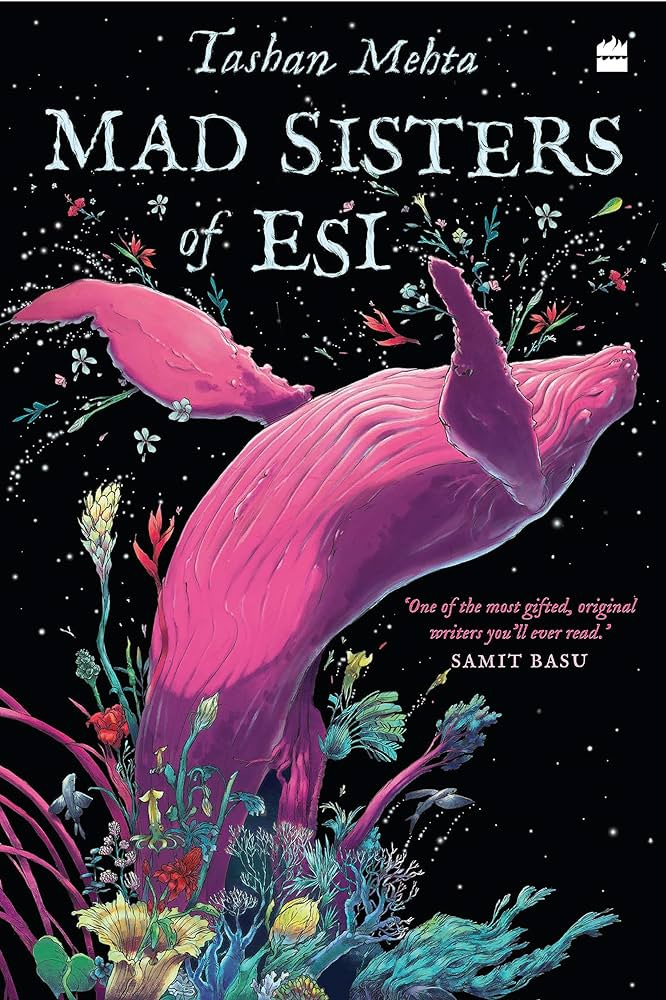
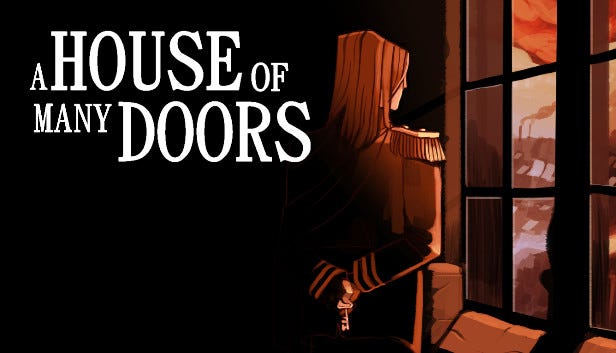
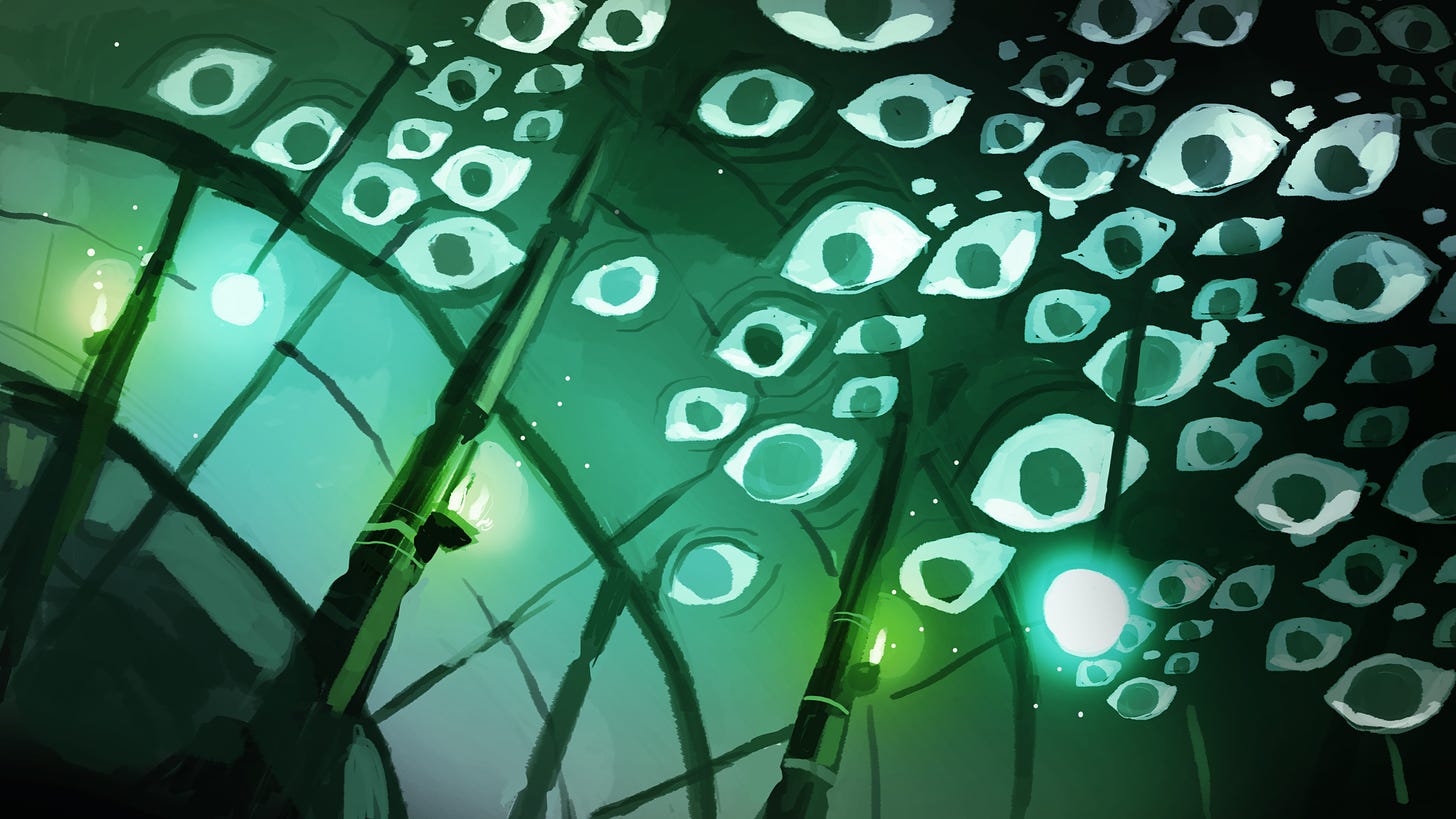
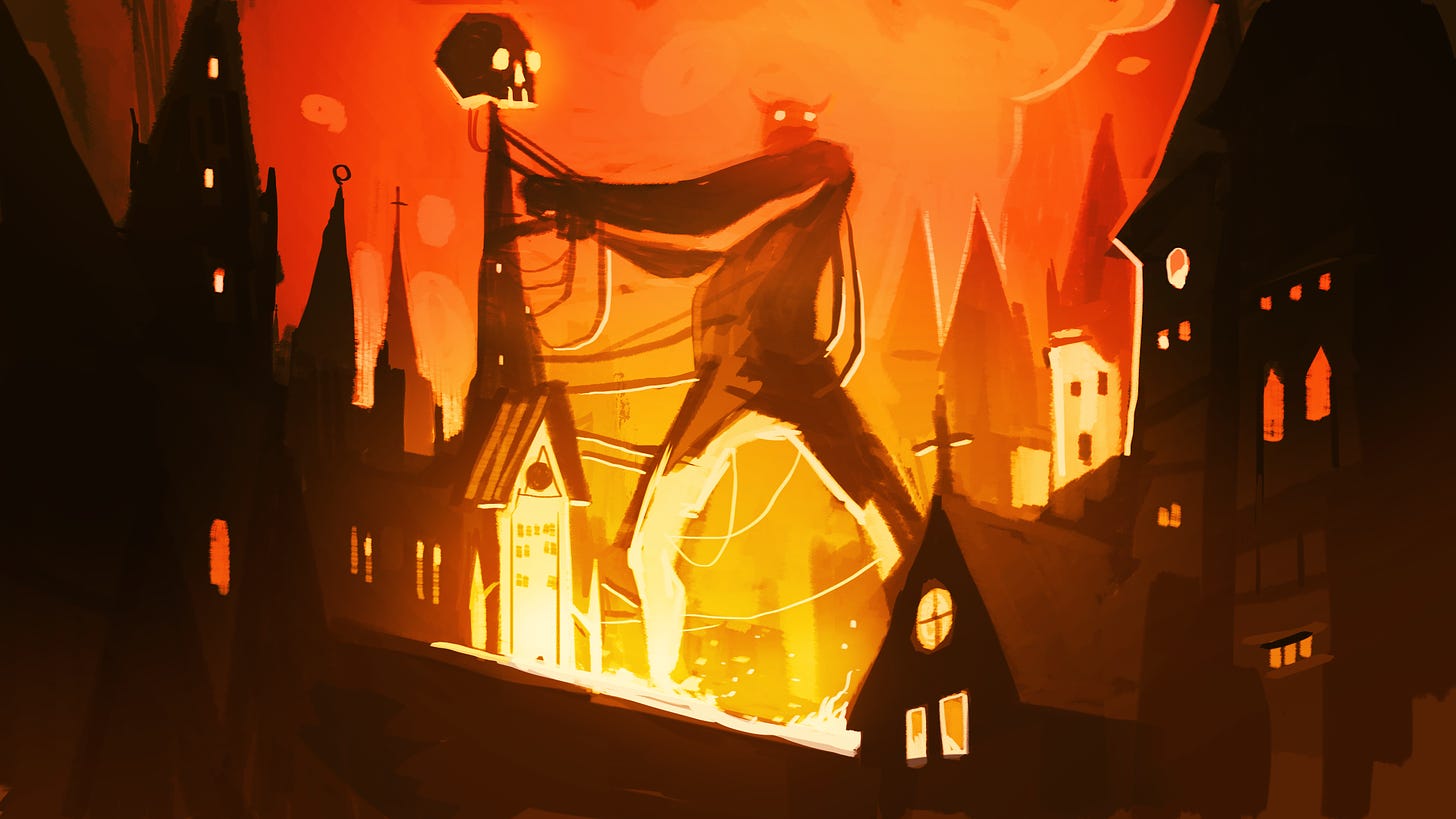
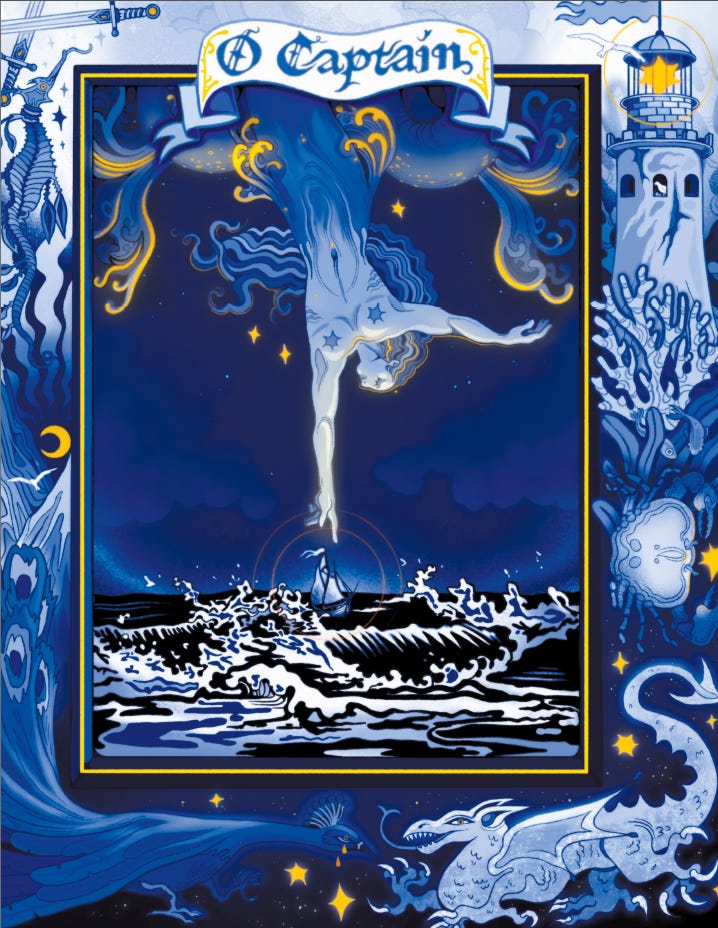
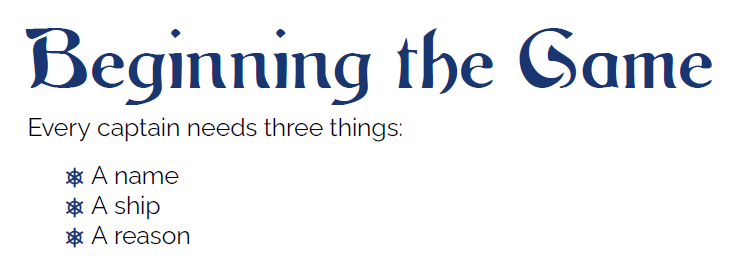
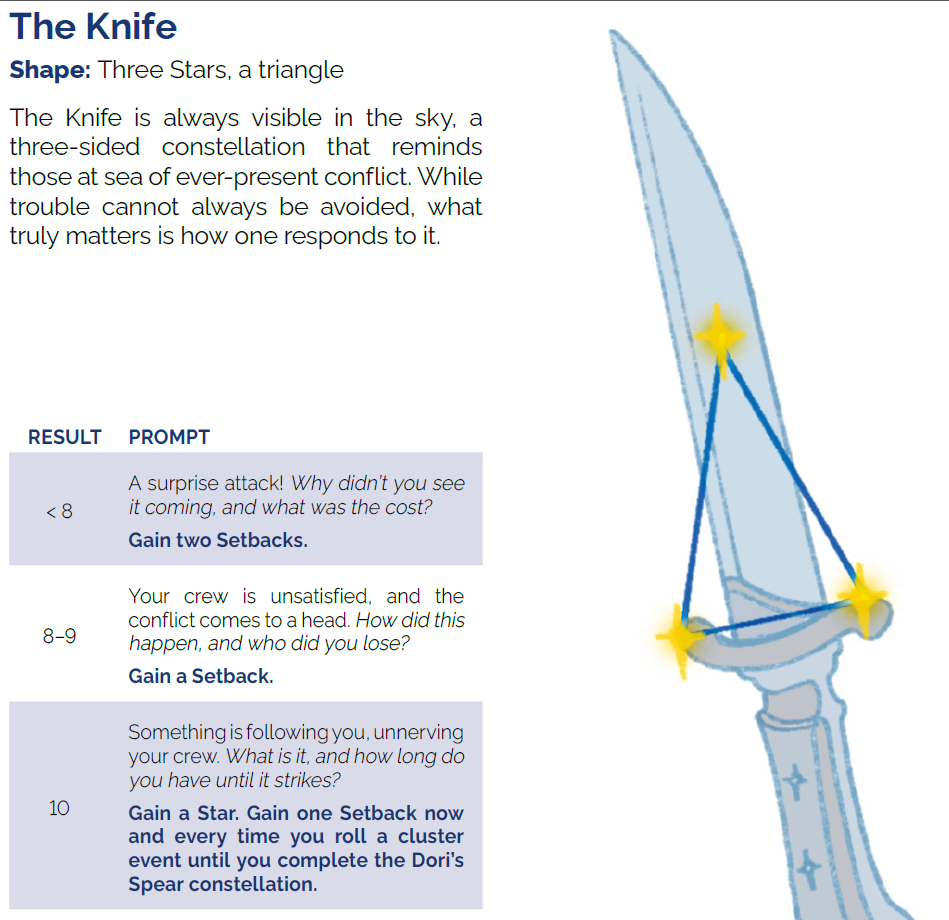
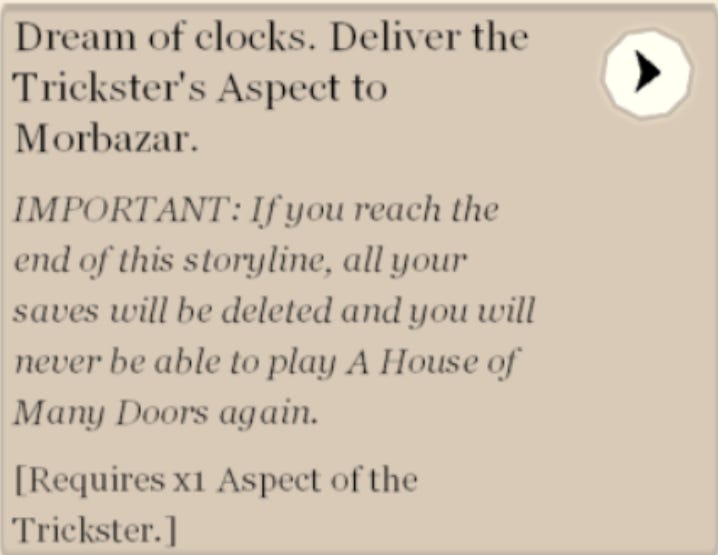
Is "the mad sisters of esi" a book or a game? I see online they say it's a novel. Is it?